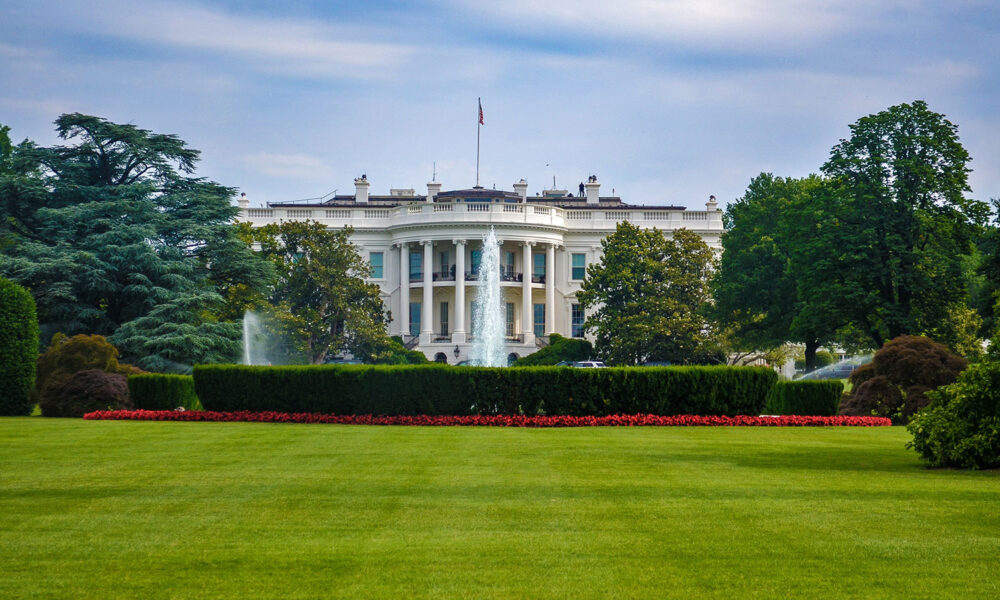On the Friday before a three-day weekend at the end of May, President Trump signed an executive order (EO) that seeks to overhaul how science can be used to inform federal policy. We’re now seeing the fruits of that executive order in new guidance from White House Office of Science and Technology Policy (OSTP)—and how the administration is insidiously undermining science.
The executive order used terms that people often associate with science and the scientific process, like “transparency,” “reproducibility” and “peer review.” But behind this pro-science façade are directives that would weaken existing agency scientific integrity (SI) policies, which were put in place to protect federal scientists and their work from political attacks on science.
The EO directed OSTP to create new agency guidance that better aligns with the Trump administration’s ideas of how science should play a role in public policy. Agencies are then supposed to use that guidance to create new internal policies—policies that would replace the agencies’ SI policies. The Trump White House is directing agencies to rescind any scientific integrity policies adopted after January 19, 2021.
Today’s SI policies aren’t trivial. They emerged from advocacy by the scientific community, and they were created in partnership between members of the public, scientific integrity experts, and the federal government. Many agencies developed their first scientific integrity policies during the Obama administration. During the Biden administration, OSTP convened a cross-agency working group of experts that accepted public input and examined best practices. They considered all these factors to create a framework of requirements and recommendations for scientific integrity policies.
Reverting SI policies to what they were in 2021 will unquestionably weaken them. By undoing the work of the past four years, federal agencies will abandon the benefits of all of the public consultation, careful consideration, and evidence gathered to develop Biden-era SI policies.
In its guidance released in June, OSTP outlined nine key criteria that federal agencies must prioritize in their scientific and technical work to meet the Trump administration’s dubious “gold standard.” Federal agencies were directed to begin reporting on how they’re following this new guidance by August 22nd, and we’ve already seen some agencies publish their new policies. More on this to come later.
While the OSTP guidance calls for many practices that those in the scientific community already use in their respective fields—like conducting peer review on their work and being forthcoming with the methodologies used in their studies—there are multiple ways that OSTP missed the mark in their June guidance.
Specifically, there are critical elements missing from the guidance that scientific integrity experts, like those at UCS, have advocated for. These elements would help ensure the best available science is used to inform federal policy and keep federal science safe from inappropriate influence. We sent OSTP recommendations for including these key elements in its guidance, but they did not implement our suggestions.
Here are a few red flags in the OSTP guidance:
1. There is no mention of the importance of science being used to inform federal policy. Historically, scientific research and analysis have been consulted, conducted, and considered in the development and implementation of federal policy and regulations. As Jennifer Jones—the Program Director of UCS’s Center for Science and Democracy—explained here, if you take prescription medication, if you have access to clean drinking water, if you have confidence in the safety of your food, you’ve benefited from the science used to inform federal regulations.
Notably, scientific consensus and expertise also underpin a lot of government funded services—like weather predictions and forecasts—and data—such as Census datasets on housing and education trends or interactive maps detailing geographic areas with high pollution. In fact, entire departments and offices within federal agencies, like the Office of Research and Development in the Environmental Protection Agency, have been created by law or mandated by Congress to ensure science is consulted in federal decision making processes.
Previous guidance released by the federal government often emphasized this historical relationship. For example, a group of SI experts across the federal government released comprehensive guidance for federal agencies to follow in 2023 to protect federal scientists and their work from political interference. At multiple points in this guidance, the experts emphasize that the best available science should be consulted in federal decision making.
The guidance released by OSTP in June does not mention this relationship or its importance at all. This notable exclusion leaves many more questions about the role science will play in developing and enforcing policy within federal agencies during the second Trump administration.
2. “Independent” (as in “independent science”) is not written anywhere in the guidance (or the EO). The overarching goal of scientific integrity policies was to prevent scientific processes, research, or results from being altered, buried, or otherwise interfered with. UCS has been tracking ways that the federal government—regardless of the president or political party in charge—has practiced such interference over two decades, resulting in real harm to communities and to our planet.
When I say it’s important to keep science independent, I mean that it’s important to let federal scientists design, conduct, and communicate the results of their work without fear of censorship or retaliation, even if what they find is inconvenient for political, ideological, or corporate actors. As one example, this means letting research that shows a connection between chemicals like ethylene oxide and cancer see the light of day, even if it means that science will form the basis of rules that may impact industrial facilities that emit those chemicals.
Despite the importance of independent science, and the fact that previous guidance on federal science prioritized it, the June OSTP guidance does not discuss it. This troubling omission becomes more alarming as we consider the next red flag.
3. The guidance doesn’t specify who will hold political interference to account. Biden-era SI guidance tasked career staffers with overseeing SI policy enforcement and resolving potential SI violations. These Scientific Integrity Officials work within the agencies whose integrity they oversee and are not beholden to any individual administration. These roles and responsibilities were explicitly recommended by SI experts during President Biden’s administration. This meant that federal agencies who did not already have their own version of Scientific Integrity Officers were directed to institute one.
In President Trump’s EO, he directed federal agencies to revert SI policies back to what they were before the conclusion of his first term, leaving many of these roles vulnerable to termination. Moreover, President Trump’s EO explicitly directs that political or HR officials be appointed to this type of role, giving them the power to oversee the enforcement of these new policies, as well as resolving any violations. At best, this directive may put people who do not have agency-relevant expertise in this role. At worst, it would open the door to the kind of politicization President Trump claims he wants to end.
Because the OSTP guidance does not specify who will be placed in these oversight roles, it’s unclear who will be taking up the mantle to protect science from politicization from within federal agencies. If political officials with loyalty to the Trump administration do replace non-partisan career officials, the chances of political interference in federal science only becomes greater.
4. There are no directives to help protect federal scientists, whether from censorship or from retaliation. As I mentioned earlier, SI policies were created to help protect science from interference, because science isn’t always convenient for political, corporate, and ideological agendas. To this point, Biden-era SI policies made more explicit the protections federal workers have against politicization of their work.
One way SI policies did this was byfacilitating open communication between federal agencies and the public. In the past, federal workers have been barred from sharing their work and their expertise with members of the media or with the public, whether that’s through interviews, social media posts, publications, or other platforms. As we saw in January, censoring federal scientists impacts critical and timely agency communication with the public, like updates on the avian flu.
Protection from retaliation was an area that was developed more during President Biden’s administration with the release of OSTP’s SI Framework in 2023. In this guidance, SI experts emphasized that workers who speak out and report on SI violations, like after a political official tells scientists to alter reports to support an administration’s preferred conclusion, should have explicit legal and professional protections. Reverting SI policies back to what they were in January 2021 will endanger these types of protections. And with no mention of their importance in the new OSTP guidance, it’s unclear how that will be handled by individual agencies.
Breaking Trust
Regardless of how political appointees choose to use the scientific information they’re provided, the science itself should not be manipulated for political ends. We need to be able to trust the science funded by the public and carried out on the public’s behalf, and that means scientists should be able to follow the evidence wherever it leads and share their findings openly with the public.
Behind the cover of science-esque language, the Trump administration is clearly and willfully breaking that trust and declaring that science is subservient to their political agenda. In an administration staffed by political appointees whose beliefs run wildly counter to the evidence on issues like climate change and vaccine safety, that’s unsettling. When you consider it in light of the censorship, research restrictions, and firings we’ve seen across the administration, it’s downright dangerous. The Trump administration’s approach is an invitation to political interference as a norm.
What you can do to help
Ahead of the August 22nd deadline, UCS sent letters to agencies across the federal government that recommended ways that federal agencies can continue to follow SI best practices in the face of OSTP’s lackluster guidance. We’ve been monitoring how federal agencies have reacted to the “gold standard” guidance and will track how their policies change after August 22nd.
At this point, you may be wondering how you can help UCS protect science from politicization in the federal government. What we really need is for scientific integrity protections to be codified at the federal level. In other words, we need Congress to pass the Scientific Integrity Act. If this were to become law, scientific integrity protections would be universal across all federal agencies that fund, conduct, and oversee scientific work. And these protections would help prevent attacks on science that originate from within or outside of federal agencies, including from the executive branch, and give stronger protections to federal scientists.
This means that federal scientists would be protected from interference and censorship, regardless of who is in office. It would make safeguards against political and corporate interference stronger and more consistent.
Having scientific integrity policies enshrined into law would also make it easier to hold politicians accountable for their anti-science actions, like all the actions I write about in my monthly round-up blogs. Censoring scientists, altering study results and halting data collection have all occurred just the first six months of this administration. And these actions will have an impact on you.
Folks who want to help can click on this link to send a letter to their members of Congress. It’s more important now than ever to advocate for federal science, and our members of Congress can help us now by passing the SI Act.

